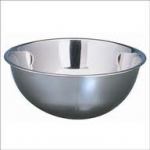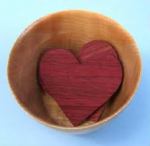Words Of Love
 Once a month I blog for the Size Acceptance website: Fierce Freethinking Fatties. It is a wonderful website, passionate and informative on issues of fat politics, fat activism, size acceptance, and has a great “cast” of bloggers. Recently there was an interview with Shannon Russell, our Fierce Fearless Leader at FFF, in which he talks about the importance of Fat and Size Acceptance. I am hoping that some of the folks who read my blog here at Dr. Deah’s Tasty Morsels, will also go explore the work being done at FFF. Here is one post that I recently wrote for them to give you a taste of what you may have missed.
Once a month I blog for the Size Acceptance website: Fierce Freethinking Fatties. It is a wonderful website, passionate and informative on issues of fat politics, fat activism, size acceptance, and has a great “cast” of bloggers. Recently there was an interview with Shannon Russell, our Fierce Fearless Leader at FFF, in which he talks about the importance of Fat and Size Acceptance. I am hoping that some of the folks who read my blog here at Dr. Deah’s Tasty Morsels, will also go explore the work being done at FFF. Here is one post that I recently wrote for them to give you a taste of what you may have missed.
Whoever came up with the expression, “Sticks and stones may break my bones, but words will never harm me,” probably had really good intentions. I can picture the person, maybe a mom, consoling her child on the playground after being teased or called a name. Inside she is trying to repress her rage and the maternal urge to pummel the offender and make them suffer for what he or she did. Outwardly she is the epitome of cool, having learned in her parenting classes how to capitalize on teachable moments such as these, and help bolster the self-esteem of her child while not encouraging physical retaliation.
I understand the reasoning, but as well-meaning as the saying might be, I couldn’t disagree more vehemently.
Words can hurt.
Mean words can really hurt. And while scars from a fist, rock, or willow-whip may eventually fade to invisible, the aggression behind the assault leaves a wound that lingers long after the stone, or word, has been cast.
There are some people who have a way with words. They know exactly which words to use to get under your skin and elicit the intended reaction. When I am giggling uncontrollably while reading a David Sedaris story, for example, it is because Sedaris has found just the “write” combination of words to tickle my funny bone.
Of course the opposite is also true: words can hurt.
In an inpatient drama therapy group I led, one of my patients was working on a collage. This was years before those cool refrigerator word magnets, but imagine cutting out words from magazines in tiny rectangles and pasting them on a piece of paper. The theme of the activity was “A WAY WITH WORDS” and one step of the activity was to identify words from the patient’s past that had impacted them both positively and negatively.
It was no surprise to me that most of the people working on the art directive had a teeny tiny collection of positive words in their collages. Even less surprising was that the majority of negative words they identified were about their bodies.
The one patient I am remembering cut the words out in the shapes of arrows: “fat, ugly, house, horse, whale, lazy, pig, fatnstupid, lazyandfat,” and pasted them on the paper around the silhouette of her body as if they were piercing her from head to toe, inside and out. It was a powerful piece of art work and, in the discussion that ensued, I spoke about how the words from their lives had poked holes into their self-esteem and now, like the words pasted on the paper, those words stuck to their core and became integrated as part of their self-worth. It was the beginning of a long process of healing.
 I believe that we are born with a healthy sense of self and an innate ability to appreciate the amazingness of our body and its ability to navigate the challenges inherent in living. Our self-confidence and self-esteem are held in a giant bowl somewhere deep inside of us and, for many of us, somewhere along the way that bowl slowly transforms into a colander.
I believe that we are born with a healthy sense of self and an innate ability to appreciate the amazingness of our body and its ability to navigate the challenges inherent in living. Our self-confidence and self-esteem are held in a giant bowl somewhere deep inside of us and, for many of us, somewhere along the way that bowl slowly transforms into a colander. 
Little holes get poked all around the bowl and our confidence leaks out. Bullying, teasing, and mean words are some of the primary tools used to punch holes. We get criticized, we get teased, we are told we’re not good enough, we are held up to unattainable standards.
Eventually, we become so perforated that even when we do something we feel good about, we can hold on to it for a moment and then it is gone. It has slipped through what has become an emotional colander and we are left needing a new pat on the back, kind word, or “you are OK” in order to regain our equilibrium.
This insatiable need for recognition and approval, this voracious appetite to be perfect, validated and praised, is frequently intertwined with body image issues and problematic relationships with food. It is sometimes experienced as an all-or-nothing event. You miss one day of exercise and everything goes out the window and you are bad. You drink one less 8-ounce serving of water and you have blown your entire program. You gained two pounds and you are a hideous horrible failure. Every student in the class is hanging on your every word, but the one student who falls asleep or seems distracted is the one student you become obsessed with. Never mind that the student may have just pulled an all-nighter or is grappling with who knows what college crisis, somehow it has to be about you not being a good enough teacher or a good enough student or a good enough dieter or a good enough person.
So when we talk about improving our self-esteem and self-acceptance, part of that work is repairing the holes in the bowl of our soul so we can once again hold on to our positive sense of self. We need to Spackle the cracks with our own set of standards for what makes us OK and find a way not to internalize the mean words that may still, from time to be time, be aimed and fired at us by others and by ourselves. It is no surprise that one of the most powerful ways to do this is by using positive affirmations, supportive words, acknowledging words, words, As Mama Cass used to croon, of Love. It’s like learning a new language and it takes practice but I believe in the power of words, to hurt…yes, but also to heal.

 Eating Disorder Self Test. Take the EAT-26 self test to see if you might have eating disorder symptoms that might require professional evaluation. All answers are confidential.
Eating Disorder Self Test. Take the EAT-26 self test to see if you might have eating disorder symptoms that might require professional evaluation. All answers are confidential.